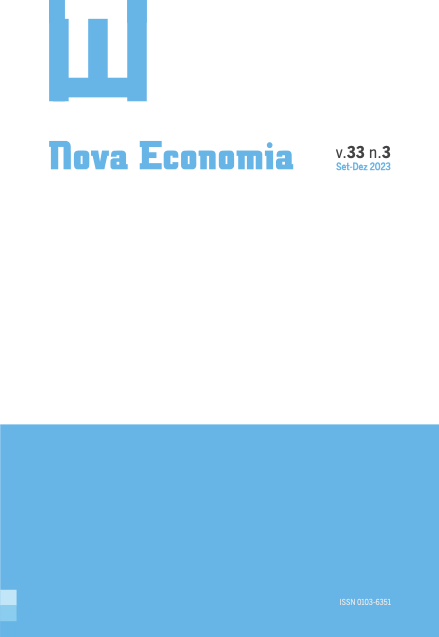The professionalization of public economists in Brazil and their demand and supply movements: History, sociology of the profession, and state capacities
Abstract
The paper presents the use of an interpretative model to study the presence of economists in government, with special attention to the Brazilian case. Based on theories and concepts from sociology and policy analysis, a model of supply and demand for economists in government is devised. To this end, we use Andrew Abbott's sociology of the system of professions and the concept of state capacities. This interpretive model is applied to the analysis of three moments in the history of economists in the Brazilian government: the emergence of the demand for economic knowledge in the Brazilian bureaucratic state in the 1930s and 1940s, the building of a more sophisticated system and community of economists around the 1960s, and the debates about inequality and inflation in the 1970s and 1980s.
Downloads
Published
How to Cite
Issue
Section
License
Copyright (c) 2023 Luis Gustavo Nascimento de Paula, Marco Antonio Ribas Cavalieri

This work is licensed under a Creative Commons Attribution 4.0 International License.
Authors who publish with this journal agree to the following terms:
- Authors retain copyright and grant the journal right of first publication with the work simultaneously licensed under a Creative Commons Attribution 4.0 International License that allows others to share the work with an acknowledgement of the work's authorship and initial publication in this journal.
- Authors are able to enter into separate, additional contractual arrangements for the non-exclusive distribution of the journal's published version of the work (e.g., post it to an institutional repository or publish it in a book), with an acknowledgement of its initial publication in this journal.
- Authors are permitted and encouraged to post their work online (e.g., in institutional repositories or on their website) prior to and during the submission process, as it can lead to productive exchanges, as well as earlier and greater citation of published work (See The Effect of Open Access).




